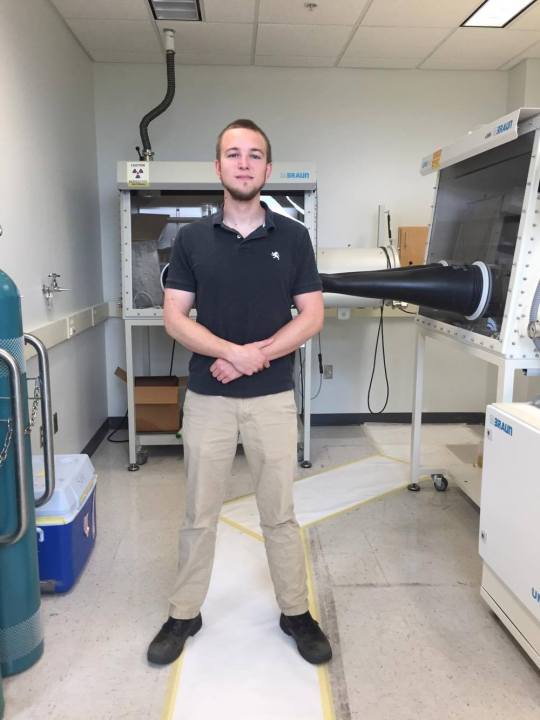
Mark Silver
Hometown: Westlake, Ohio
2013 - 2016
Currently Resides In: Suzhou, Jiangsu, China
Ph.D. of Inorganic Chemistry
Hoffman Fellowship, DOE/ORISE/Carlsbad Field Office Fellowship
Mark Silver, U.S. Department of Energy Carlsbad Field Office Fellowship
Current Job/Occupation
Associate Professor of Chemistry and Radiation Medicine
Conducting research in the areas of f-elements chemistry, including stabilizing uncommon oxidation states of metals, characterizing actinide materials, separating radioactive isotopes from spent fuel processes, seawater, and coal fly ash, and pursuing new pharmacological agents for isotope removal and radiation therapy.
Instructing students on topics in radiochemistry, f-element chemistry, and writing scientific manuscripts in English (my students are Chinese, just to reiterate)
Educational/Professional Background
Research involving nuclear materials has been something I’ve been inconspicuously committed to throughout my entire life. Perhaps this dormant drive was passed down from my grandfather, whose work in the Pacific atolls provided data for military scientists before the Cold War. In the time since the end of this international dispute, scientists, like Thomas Albrecht-Schmitt, have been able approach these heavy elements with a bit of freedom to explore the chemistries and fundamental properties of these elements, aside from their use on the battle lines. This opportunity has been very attractive, as it has allowed me to apply my understanding of coordination chemistry and inorganic chemistry to actinide science. Disciplined focus in this topic has been beneficial to radiological scientists, such as those working on solving nuclear repository issues and others furthering our understanding of heavy and super heavy elements. The Department of Energy external fellowship that I have been awarded is evidence of their recognition of my research.
Unique Awards/Achievements
Mark Silver, U.S. Department of Energy Carlsbad Field Office Fellowship
The fellowship that I have been awarded has allowed me to pursue research at several institutions, including the National Accelerator Laboratory at Stanford and the Institut für Nukleare Entsorgung in Karlsruhe, Germany. These endeavors have provided much depth to my graduate research, where at the former facility synchrotron experience and data were acquired on samples related to my fellowship’s goals. At the latter institution, research in line with the goals of an international nuclear repository community was gathered with the intent of finally placing a confirmatory pin in an issue that has been disputed for several decades. With only a few months left in my graduate career, these results are monumental to both me and my collaborators, but will require intense efforts to get into writing before my defense in the late-Fall.
Experience as A Member of The Fellows Society
Being a member of the FSU FS immersed me in a culture of highly-disciplined and success-oriented young researchers, who were able to achieve so much in so many unique areas of science and art. The Society allowed me to present my research, which gave me perspective on displaying my results to an audience who had little knowledge of the research area from where I was investigating. Additionally, I was exposed to so much cutting-edge research from other members, that I began to understand new methods for presenting data and conclusions, as well as how to present to an audience ignorant of the areas being presented. The chance to meet with President Thrasher twice was just a bonus.
Future Plans/Aspirations
My intended career path is aimed at obtaining a postdoctoral position, followed by conversion to staff scientist, at Los Alamos National Laboratories. This facility is terra firma for heavy element researchers, and has a rich history of scientific achievement in the realm of nuclear chemistry. Known as being a laboratory fully dedicated to actinide research, the added scrutiny of radiological safety officers would be a small obstacle if the cutting-edge research that I have planned comes to existence. It is my hope that I am able to appropriately work with LANL staff to puncture the ceiling of our current understanding of actinide chemistry and to refine the models we use to describe these elements at the bounds of stability in the periodic table.
Feedback
Lisa, I trust you will continue to direct the Society towards success and provide members with great opportunities like you did me and my peers. You rock and I hope you are doing well!
